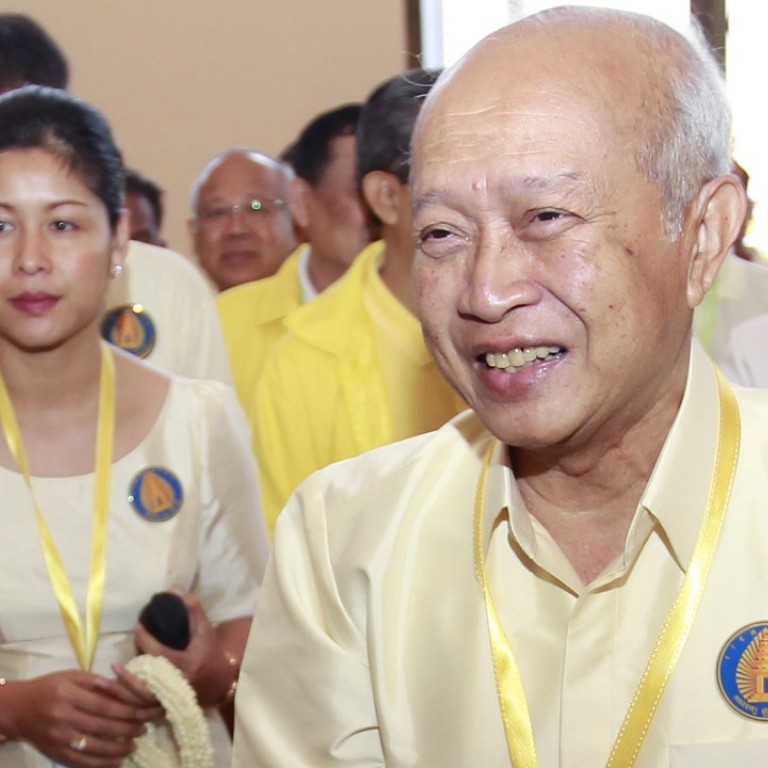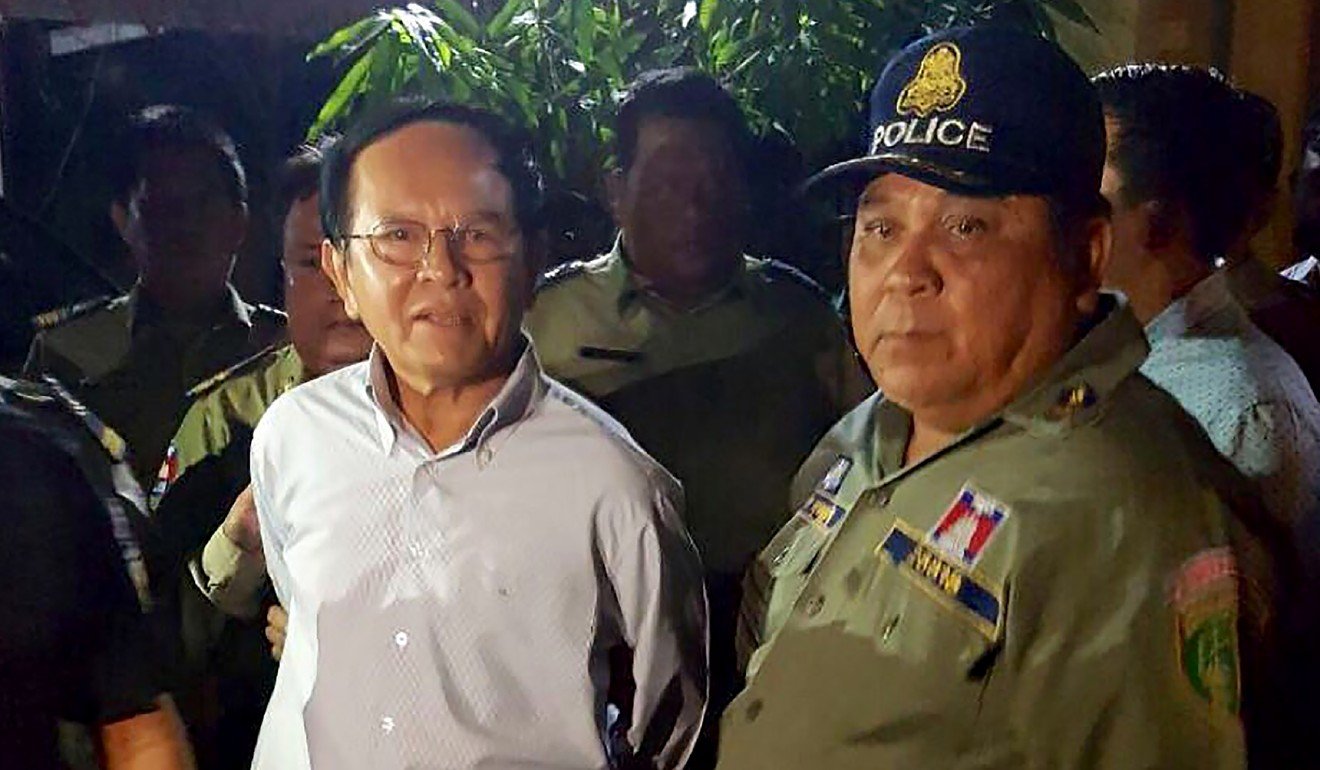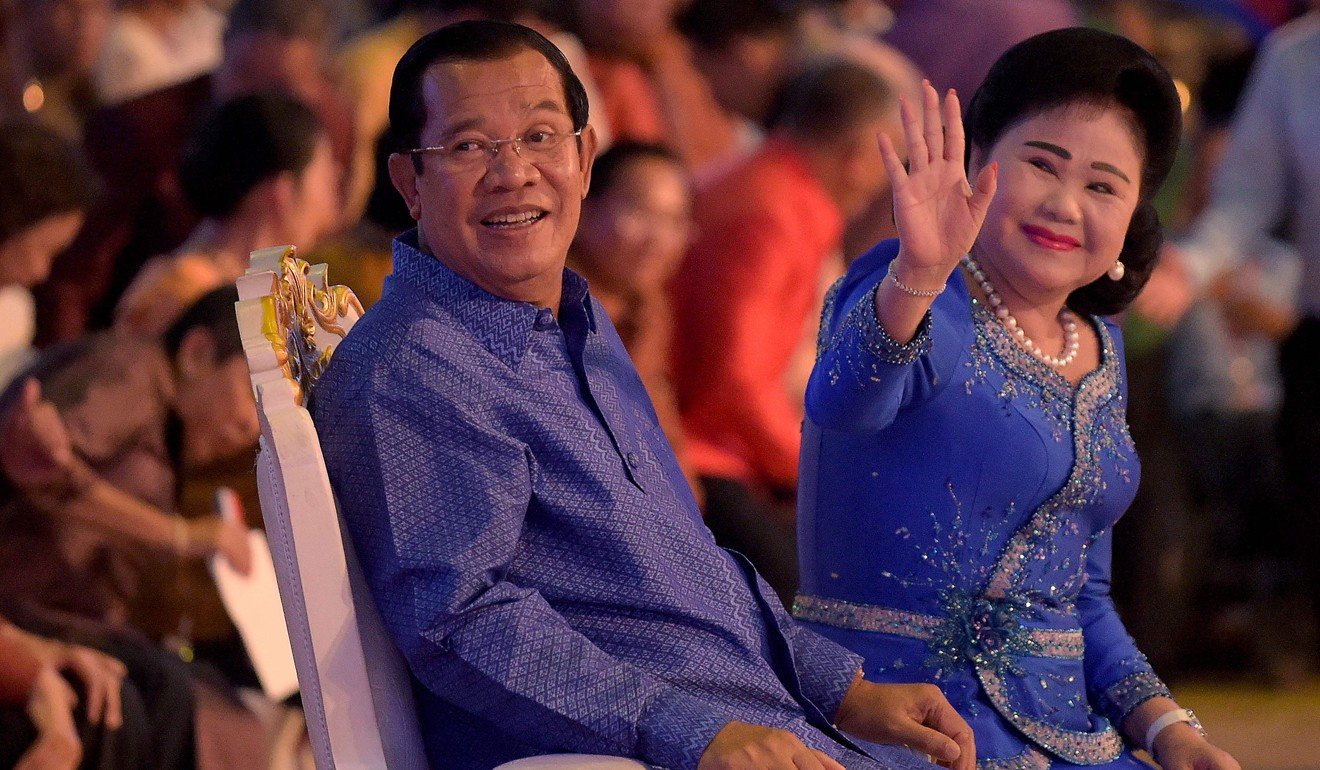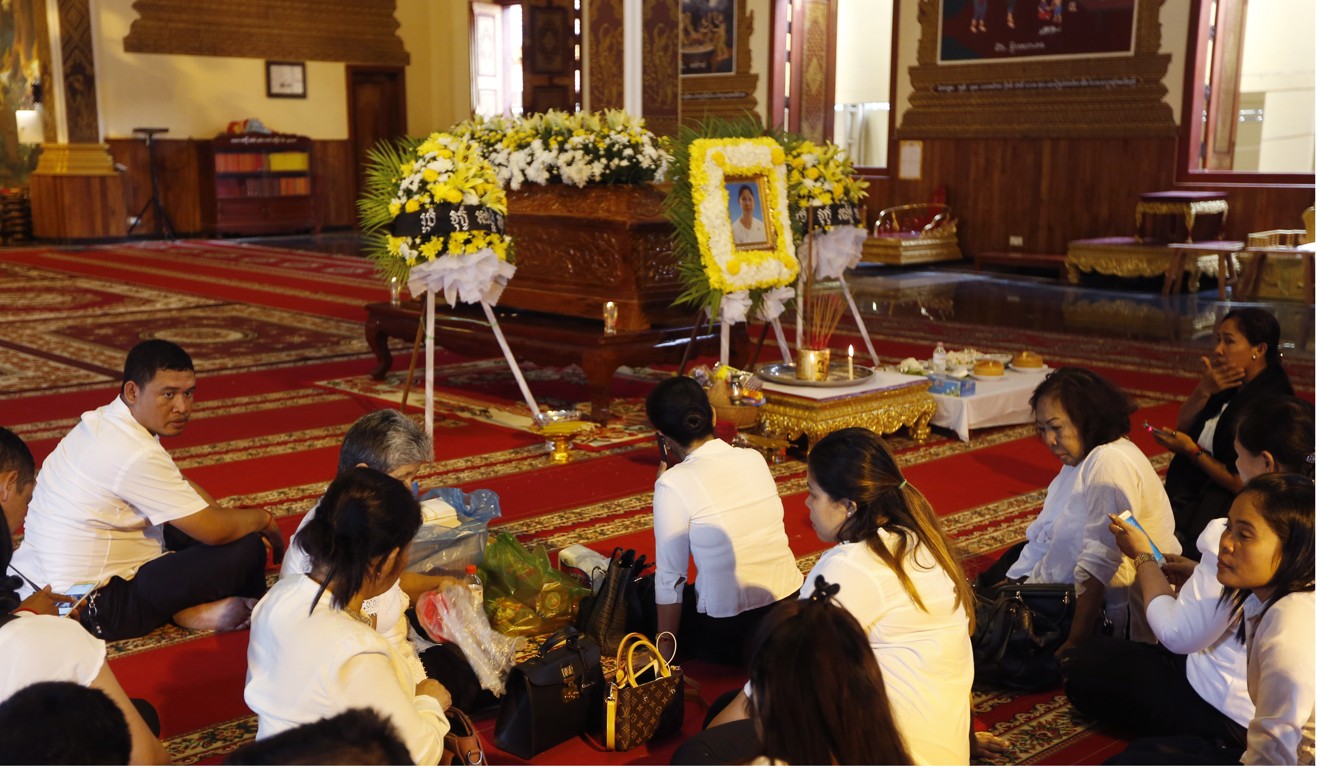
A Mahathir-like figure, a car crash, and Cambodia’s ‘election’
Prince Norodom Ranariddh was a former leader returning to politics, but his severe injury in a head-on collision means Prime Minister Hun Sen is unable to give voters even the veneer of an honest election
His impaired condition puts even the semblance of an open democratic process – designed to make Prime Minister Hun Sen’s re-election look like it was part of a fair fight – in peril.
Welcome to Asia’s newest one-party state
The Funcinpec Party’s 74-year-old candidate has not left his Bangkok hospital, or even been seen, since he was hurt in a head-on collision on a costal highway on June 17. With the national election set for July 29, a close source claims his return to politics is doubtful.
Initial reports claimed he had only broken his leg.
“He can hardly speak,” the source said, adding that the prince seems “a bit lost”.
Hun Sen – one of the world’s longest serving leaders – is seeking to prolong his 33-year grip on power in the national vote and has methodically used the courts to cripple his opponents.

Even led by a healthy Ranariddh, Funcinpec – the royalist party – was unlikely to win a significant number of seats, and the prince had virtually no chance of winning the premiership. But in an election where the outcome was decided months ago, image is everything.
But while Mahathir returned to politics triumphantly, Ranariddh sneaked back in through a back door.
US firm alleges Chinese hacking of Cambodian government
Funcinpec is currently the largest opposition party in the National Assembly, but the way its members got there was highly controversial and undemocratic.
The main opposition party – the Cambodia National Rescue Party (CNRP) – was forcibly dissolved in November for allegedly attempting to topple the government, with party president Kem Sokha jailed for treason. Most observers dismissed the allegations, claiming the government did away with the CNRP over fears that it could win the national election. Most opposition leaders left the country, fearing a crackdown on Hun Sen’s critics.

This left Funcinpec to pick up the pieces. It finished the 2013 national election in a distant third place, with just 3.66 per cent of the vote. But it was given the bulk of the CNRP’s now-vacant National Assembly seats. What’s more, the royalist party filed the original complaint requesting the CNRP’s dissolution, leading many to suspect a back room political deal had been struck.
Cambodian political analyst Meas Nee said losing Ranariddh was a blow to Funcinpec, which relies on a dwindling support base of royalists.
Cambodia’s dirty dozen: Hun Sen rules with army of usual suspects
“They are not strong enough to gain popularity without Ranariddh,” Nee said.
All the other minor parties are now jockeying to be the “true” opposition, including the Grassroots Party, co-founded by the murdered political activist Kem Ley, and the Khmer Will Party, which claims to hold the “spirit” of the CNRP.

While Ranariddh is still officially Funcinpec’s prime minister candidate, he’s expected to be in hospital for a minimum of two or three more months and will be using a wheelchair indefinitely.
He has not been told of his wife’s death, a decision that stirred some controversy on social media. However, the source said Ranariddh has only asked for her once and seems to be suffering from memory loss. “He’s still very, very weak,” he said.
The source said the only role he could play in the government would be “honorific” for the time being.
Sebastian Strangio, author of Hun Sen’s Cambodia, agreed. “Prince Ranariddh certainly has brand-name recognition; he’s somebody who has been known to the Cambodian electorate for many years,” he said.

With the CNRP gone, Hun Sen’s re-election is all but assured. Rather than working to defeat his opponents, the premier instead has the somewhat counter-intuitive objective of propping up the other parties to create the illusion of a competitive poll.
Strangio said Ranariddh helped contribute to that illusion, both by his presence and by parroting Hun Sen’s talking points.
“He issued statements backing the CPP [Cambodian People’s Party] on a range of issues, including the fact that Cambodia remained a multi-party democracy despite the CNRP’s dissolution,” Strangio said, adding that Ranariddh “leaned on what remained of his royal aura to the facade established by Hun Sen”.
While both Nee and Strangio acknowledged that Ranariddh was the most experienced opposition politician left on the political stage, they said he lost any true political influence after Hun Sen deposed him in the 1997 coup.
As anti-US feeling grows in Cambodia, China cashes in
“The name of Ranariddh had mostly disappeared,” Nee explained.
Ranariddh clung on to power afterwards, serving as president of the National Assembly until 2006. But, according to Strangio, he remained relevant by capitulating to Hun Sen and accepting a “subordinate role”.
“He tried to carve out a patronage niche for himself within the system,” Strangio explained.
Strangio went on to say that while Ranariddh is the biggest opposition figure left after the CNRP’s dissolution, this fact reveals more about Cambodia’s barren political landscape than it does about Ranariddh’s influence.
“The fact that there is no one competing in the election that has anything like the nationwide recognition of someone like Prince Ranariddh suggests the dearth of meaningful opposition to Prime Minister Hun Sen.” ■
